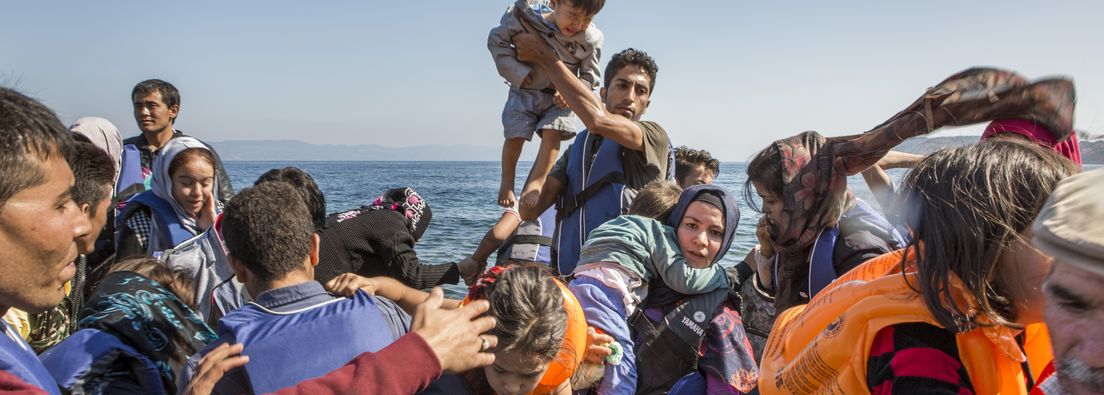Education is a human right. But for many people it is not something that can be taken for granted. Conflicts, crises or natural disasters can make access to education more difficult. According to the UNHCR, it takes an average of 17 years for a refugee to attain stability in their life. During that time, many young people and children are denied access to education, the result of which being that they run the risk of falling behind irretrievably. This has an impact on the lives of individuals and families, but also on the social and economic development of the countries affected. Switzerland runs various projects in order to tackle this problem.
Children and young people particularly disadvantaged
Around 70 million people worldwide are displaced, more than half of them children and young people. In addition, schools are increasingly becoming the target of attacks, making school attendance a life-threatening endeavour. Many parents are unwilling to send their children to school because of the lack of security. Classrooms are either bombed to smithereens or lie empty. The consequences are serious gaps in children's education. In addition, the quality of teaching is often poor, as teachers have had no appropriate training, are grossly underpaid and receive far too little support.
Displaced people frequently face legal hurdles and discrimination and often have no access to education and training, according to a UNHCR report. Girls are particularly disadvantaged in many places, often having to stay at home for various reasons and dropping out of school much more frequently and earlier than boys. The report also shows that with children of school age, the longer they do not attend school, the lower their chances of re-entry.
Education as a solution
Education is particularly important in emergency situations. It promotes the intellectual, cognitive and social development of children. During a crisis or conflict it can provide children with a routine, stability, a structure in their lives and hope for the future. Education can even save lives: it provides vital knowledge, for example teaching children how to deal correctly with landmines. Education ultimately provides the younger generation with the necessary tools to play an active role in the reconstruction of their country.
Various organisations have developed aid programmes to ensure education is provided for, even in emergency situations. These programmes, known under the banner of 'Education in Emergencies', provide educational opportunities for people of all ages who are affected by armed conflict or other crises.
What is Switzerland doing?
Switzerland is also helping affected people to regain a semblance of normality through education. From 2017 to 2020, Switzerland has committed 50% more funds to educational projects in international cooperation. The SDC's education strategy also provides for greater engagement in fragile contexts and crisis situations.
In Jordan, Niger, Kenya and Lebanon, for example, the SDC is involved in the reconstruction of schools. Children and parents who have fled Syria are among those benefiting from the construction of school buildings in northern Lebanon. The aim of the schools renovation programme is to prevent these young Syrians from becoming a lost generation. Syrian and Lebanese children also grow up alongside one another in these schools. Switzerland is thus helping to counteract possible tensions between the local population and the refugees.
In Kakuma, a town in Kenya, the first phase of another project has enabled 500 young men and women between the ages of 15 and 25 to receive training in various professions. The project goes under the banner of 'Skills for Life'. The aim is to train a further 2,500 people in 13 professions.
Projects like these provide young people with better prospects. Says Noëmi Fivat from the Swiss Humanitarian Aid Unit: "Ask [the children and teenagers] the question: "What do you want to be when you grow up?" and most of them now say: "I want to be a professor, a teacher or a doctor." No one says: "I want to be a soldier."


